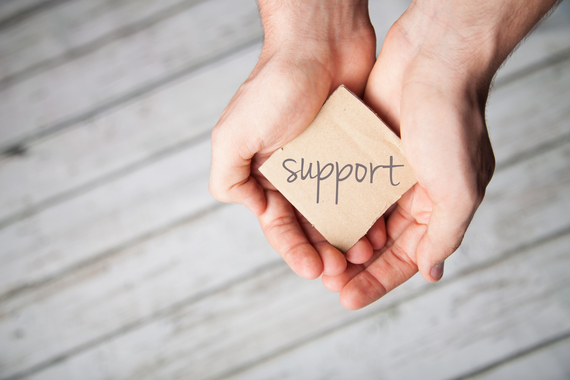Imagine going into a police station with drugs on you. You ask for help, and instead of getting arrested, you get access to treatment.
Towns like Dixon, Ill., are doing just that: Fighting the growing epidemic of drug overdose in our nation by taking action at a community level.
Our culture is at a crossroads. We need to ask ourselves, "What can we do to help stop the opioid epidemic?"
A study released from the CDC last month shows the number of drug overdoses has never been higher. Between 2010 and 2015, the rate of drug overdose deaths in the United States increased in 30 states and Washington, D.C. Eighty percent of new heroin users started on prescription drugs, and 60 people die from opioid painkiller overdoses every day. Sadly, research over the past year shows that number is growing.
These are our neighbors, our co-workers and our family members. Addiction does not discriminate, and the affect it has on individuals, families and communities is far-reaching. Drugs are everywhere, but access to help is not.
Fortunately, communities are taking unique and replicable approaches to turn the tide and save lives.
Safe Passage
Addiction is a chronic disease that if left untreated will result in death. Right now our country has more than 7 million people at risk of death from opioid and heroin addiction if they don't get treatment. Fortunately, there are communities who are combating drug-use in a different way - by offering help.
The Dixon police implemented a revolutionary program called Safe Passage, that allows drug users to seek treatment. Anyone addicted to opiates, like morphine, heroin, Fentanyl, Oxycodone and others, can enter a police station in Dixon, Ill., and hand over their drugs without fear of arrest. For those who ask for help, they will be guided to treatment. The Dixon police department partners with treatment centers to give those struggling with addiction immediate access to lifesaving treatment.
Needle Exchanges in Jessamine County
Jessamine County, sitting just north of the Kentucky river in the bluegrass state, noticed a rise in HIV and Hepatitis C outbreaks in the state due to IV drug use, a symptom of growing heroin use. More and more people were contracting these diseases through dirty needles. Jessamine County, an accredited Safe Community, instituted a needle exchange program to curb the deaths associated with improper needle use. Safe Communities achieve accreditation by looking at deadly trends affecting their neighborhoods and leveraging partnerships to put measures in place to stop preventable deaths.
A needle exchange does not, in itself, stop drug overdoses. But the facility where drug users receive clean needles is staffed with professionals who can direct clients to resources like counseling and medical treatment. They also have a counselor on site for clients who need to talk to someone right away.
The facility has seen 146 clients since April. One woman came in for seven weeks straight. On her eighth visit, she came with all of her used needles and announced she would be going into treatment. Since that visit, she returns regularly to give her new-found support network an update on her recovery progress.
Recovery Coaches
The Safe Community of Madison-Dane County was tracking a dire trend of overdose deaths in its area of Wisconsin. The Safe Community coalition now provides recovery coaches for those who have experienced an overdose. These trained coaches also recovered from addiction and are devoted to helping others in their recovery. They are available Friday nights through Monday mornings, a time when overdoses frequently occur.
The efforts of communities like Dixon, Ill., Jessamine County, Ky., and Madison-Dane County, Wis. show that change can happen at the local level. By looking at the data, identifying the problem and bringing the right partners to the table, we can save lives.

